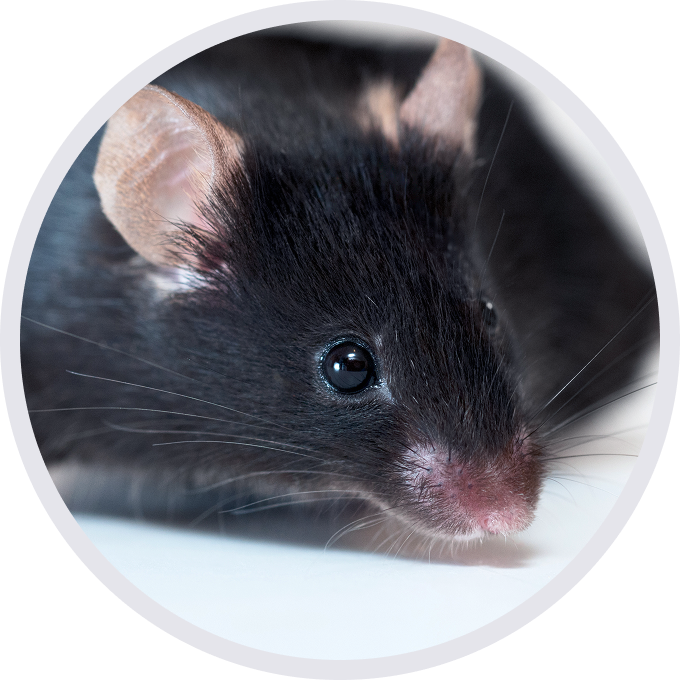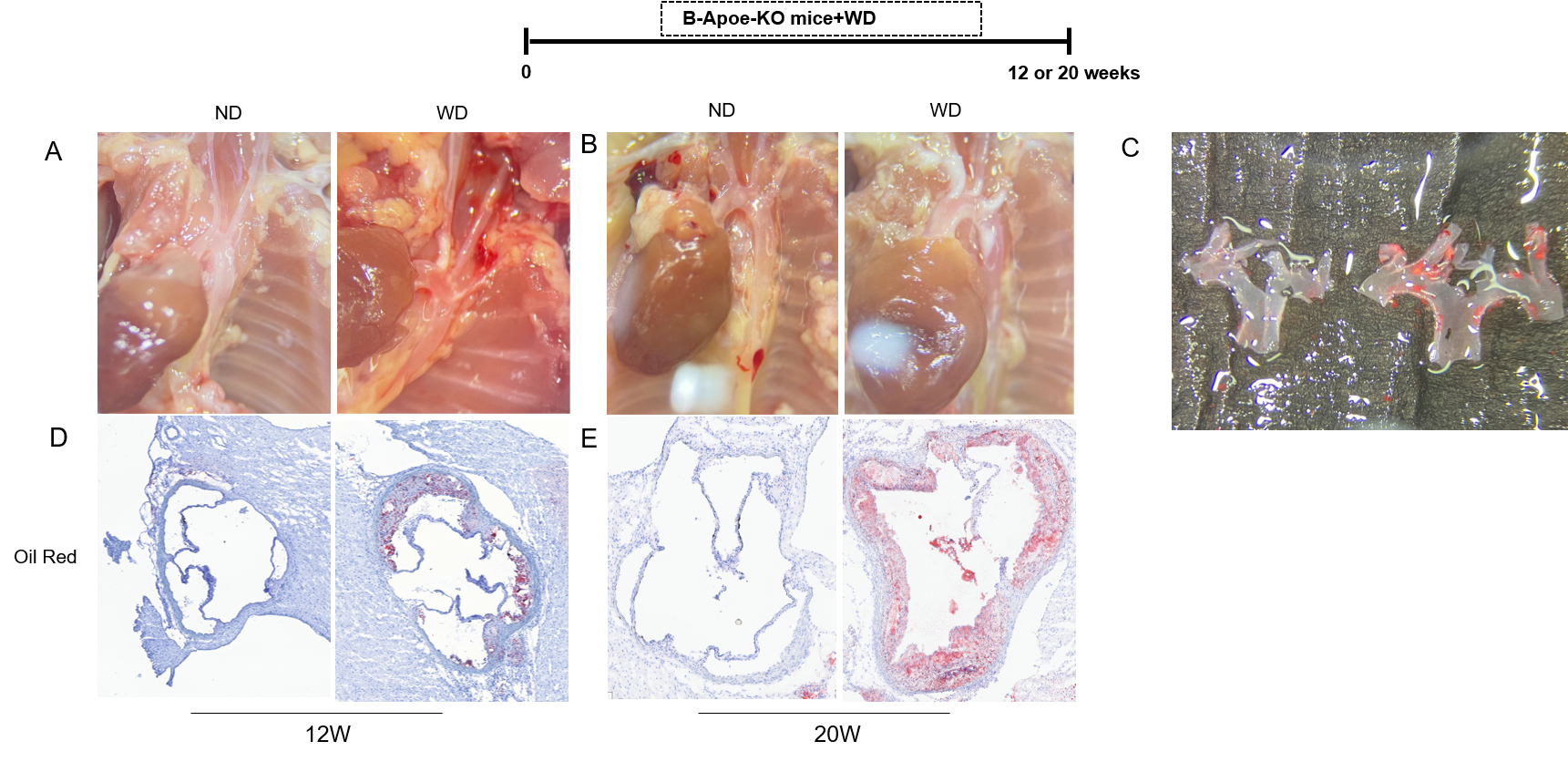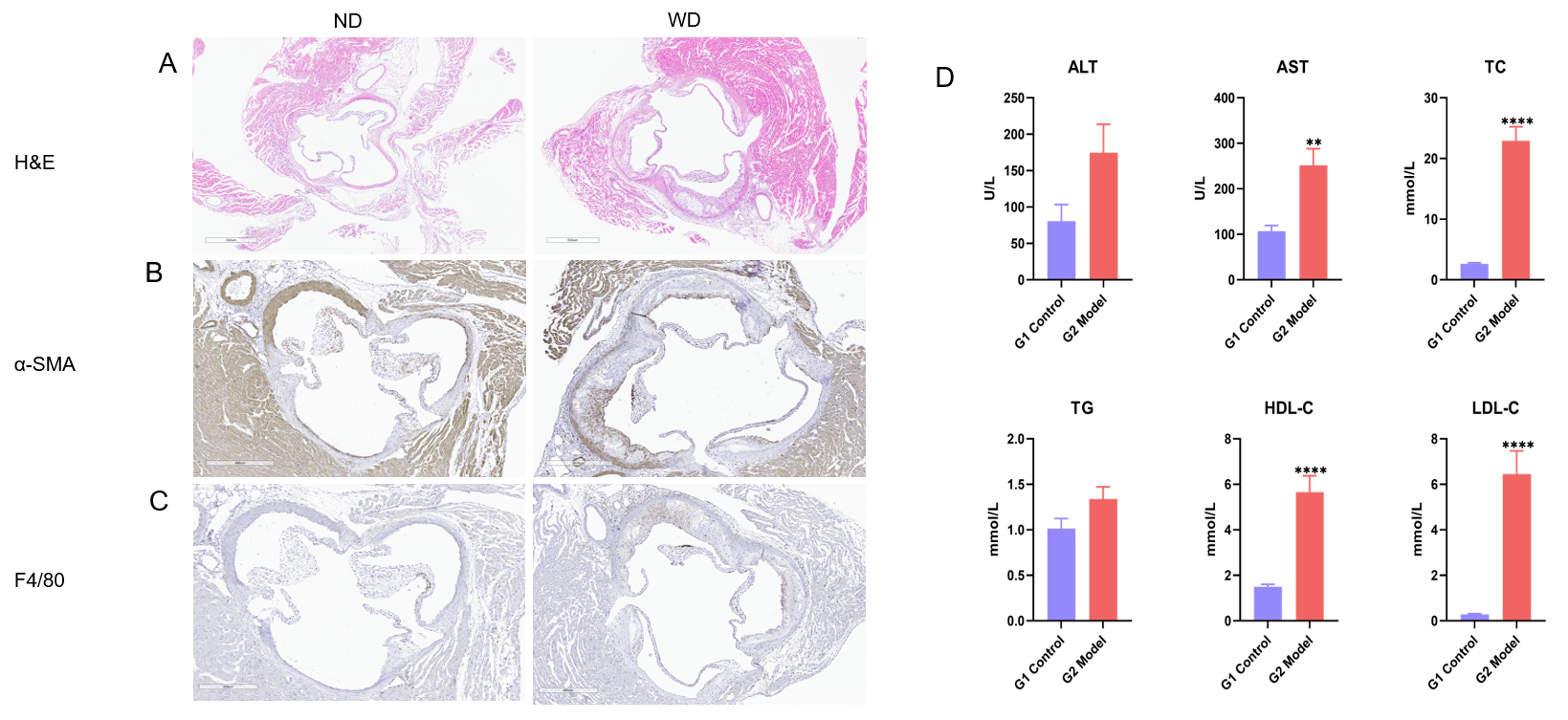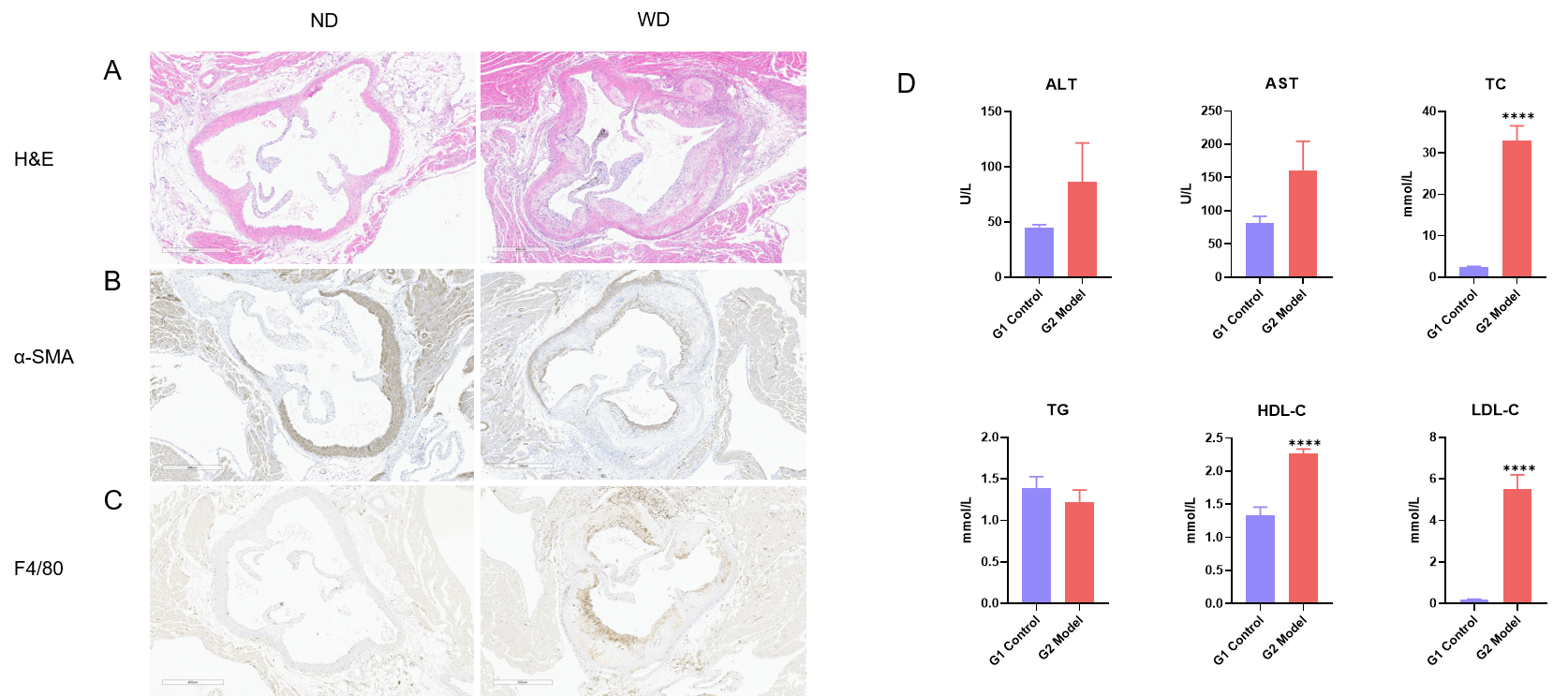
C57BL/6-Apoetm1Bcgen/Bcgen • 110168
Apolipoprotein E (ApoE) is primarily produced by the liver and macrophages in the peripheral tissues, or by astrocytes and microglia in the central nervous system. ApoE transports lipoproteins, fat-soluble vitamins and cholesterol into the lymph systems, and then into the blood, preventing the accumulation of cholesterol-rich particles in the plasma. The function of ApoE protein has been widely studied in cardiovascular disease, lipid metabolism, and Alzheimer’s diseases.

WD diet-induced atherosclerosis model in B-Apoe KO mice.
(A-B) Atherosclerotic plaques of mice after 12 weeks or 20 weeks of WD diet feeding.
(C) Oil Red O staining of the aorta after 12 weeks of WD diet feeding. (D-E) Oil Red O staining images of aortic sinus plaques in B-Apoe KO mice.
After 12 weeks of normal diet, B-Apoe KO mice (n=7,6-8 weeks, male) spontaneously developed atherosclerotic plaques, with mild symptoms. Following induction with a Western diet (WD), atherosclerosis in the aorta worsened, and symptoms continued to exacerbate by week 20.

H&E staining and blood biochemical results in the mouse model of atherosclerosis after 12 weeks of WD diet feeding. (A) The H&E staining results indicate a significant increase in AS plaques in the aortic sinus. (B-C) Immunohistochemistry shows the migration of smooth muscle cells and the infiltration of inflammatory cells. (D) ALT, AST, TC, TG, HDL-C and LDL-C levels in serum. After 12 weeks of Western diet induction, the serum levels of total cholesterol (TC), high-density lipoprotein cholesterol (HDL-C), and low-density lipoprotein cholesterol (LDL-C) in B-Apoe KO mice were significantly higher than those in mice on a normal diet.

H&E staining and blood biochemical results in the mouse model of atherosclerosis after 20 weeks of WD diet feeding. (A) The H&E staining results indicate a significant increase in AS plaques in the aortic sinus. (B-C) Immunohistochemistry shows the migration of smooth muscle cells and the infiltration of inflammatory cells. (D) ALT, AST, TC, TG, HDL-C and LDL-C levels in serum. After 20 weeks of Western diet induction, the serum levels of total cholesterol (TC), high-density lipoprotein cholesterol (HDL-C), and low-density lipoprotein cholesterol (LDL-C) in B-Apoe KO mice were significantly higher than those in mice on a normal diet.